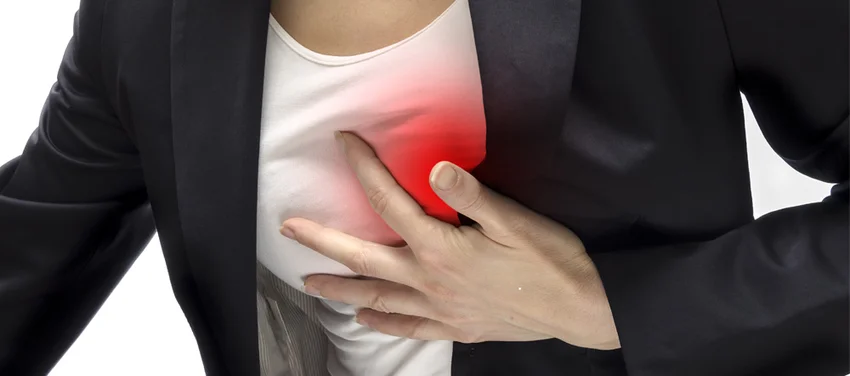High blood pressure, a disorder affecting many, was the subject of the last lecture held at the School for Health for the Elderly presented by Judit Nagy, MD, Medical Director at the Buda Health Center. Besides discussing the causative factors of the disorder, Dr. Nagy offered helpful and useful everyday advice. The audience actively interacted with the lecturer, their blood pressure was measured and their questions answered.
Practical advice regarding high blood pressure

According to official statistics, every fourth person in Hungary suffers from high blood pressure. General practitioners, family doctors and occupational health doctors, however, feel that the number is much higher in reality since many do not seek doctors.
Cardiovascular disease is the cause of death in 44% of women and 55% of men with the risk increased further by high blood pressure. A 1Hgmm blood pressure elevation increases the risk of cardiovascular disease by 11%. In 75-90% of stroke cases the cause can be traced back to hypertonia.
An alarming data shows that by 2025 1.5 billion persons will be treated for hypertension - a 60% increase from today’s findings. Thus, proper preventive care and treatment is extremely important.
Dr. Nagy emphasized the fact that a permanent blood pressure of 140/90 is considered abnormal; however, an occasional high value should also be taken seriously. The upper, the systolic value, shows the pressure in the arm’s main artery when the heart contracts while the second, the diastolic value, shows the pressure of the intervals between heart beats. The latter is significant because that is the time when the heart is relaxed and the coronary arteries fill with blood. When the lower value is low, less blood is getting into the arteries which may cause unpleasant symptoms. Since this can also be the result of inadequate liquid intake, we should make sure, especially in the elderly, that we drink 21 to 3 liters of liquid per day.
The doctor also mentioned that, when high blood pressure or cardiovascular disease is often found in a family, high blood pressure will in all probability develop. Other risk factors such as stress, obesity, sedentary life style, significant salt intake and hormonal disorders may also cause high blood pressure.
Some patients experience an increase in blood pressure just at the sight of a doctor which makes it important to repeat the measurements twice on a different arm.
Dr. Nagy reminded us that this disorder is often referred to as the silent killer since it causes no symptoms at all for a long time and is discovered only following a heart attack or stroke. Thus, in cases of headaches, weakness, dizziness, irritability, chest pain and a bleeding nose, screening and regular blood pressure monitoring are extremely important as is consultation with a doctor.
Following blood pressure diagnostics, an eye checkup should follow as well as determining the thickening of the heart wall. Examination of the kidney is also important since high blood pressure, as a complication, may damage this organ resulting in an increase in the amount of protein in the urine. The third important complication is damaged arteries of the brain which is a forerunner to a stroke, and as such, its diagnosis and proper treatment is of special significance. Proper care and treatment can reduce the possibility of a stroke developing by 45%.
A useful monitoring method is a blood pressure measuring device worn for 24-hours that gives exact readings making it possible to follow the blood pressure exactly. A complete examination will include a resting ECG and ultrasound of the heart, with the latter also showing possible valve insufficiencies. Chest x-ray may be required and ruling out sleeping disorders, the so-called sleep apnoe, in cases where high blood pressure is treated with difficulty.
The easiest treatment is a healthy diet and weight loss. According to the Hungarian Society of Hypertension, a weight loss of 10 Kg will result in a 5 to 20 Hgmm decrease in blood pressure. Lower salt intake is important, daily physical activity as is the reduction of alcohol to minimal amounts.
Blood pressure medication may be accompanied by cholesterol and uric acid medication, for the over 40 age group, regularly taken acetylsalicylic acid (75-100 mg) is recommended which may prevent the growth of arteriosclerosis plaques. It is important that we take our blood pressure medication as prescribed, take the doctor’s directions seriously since these could prevent more serious disorders. In closing, the doctor brought to our attention the importance of having our own blood measuring devices checked yearly.
Feel free to contact our specialists!
At the Buda Health Center, you have the opportunity to attend the private practices of more than 300 renowned specialists, offering expertise in nearly 45 medical specialisms, at five locations. Personalized care is provided by a well-trained and empathetic staff of professionals, who have been working together for a long time. Based on our 24 years of experience and the feedback received from our 450,000 clients, we are constantly working to organize our healthcare services in the most efficient way possible for those who visit us, paying respect to their needs and time.
Book an appointment on weekdays between 08:00 and 20:00 on +36 1 489-5200!

